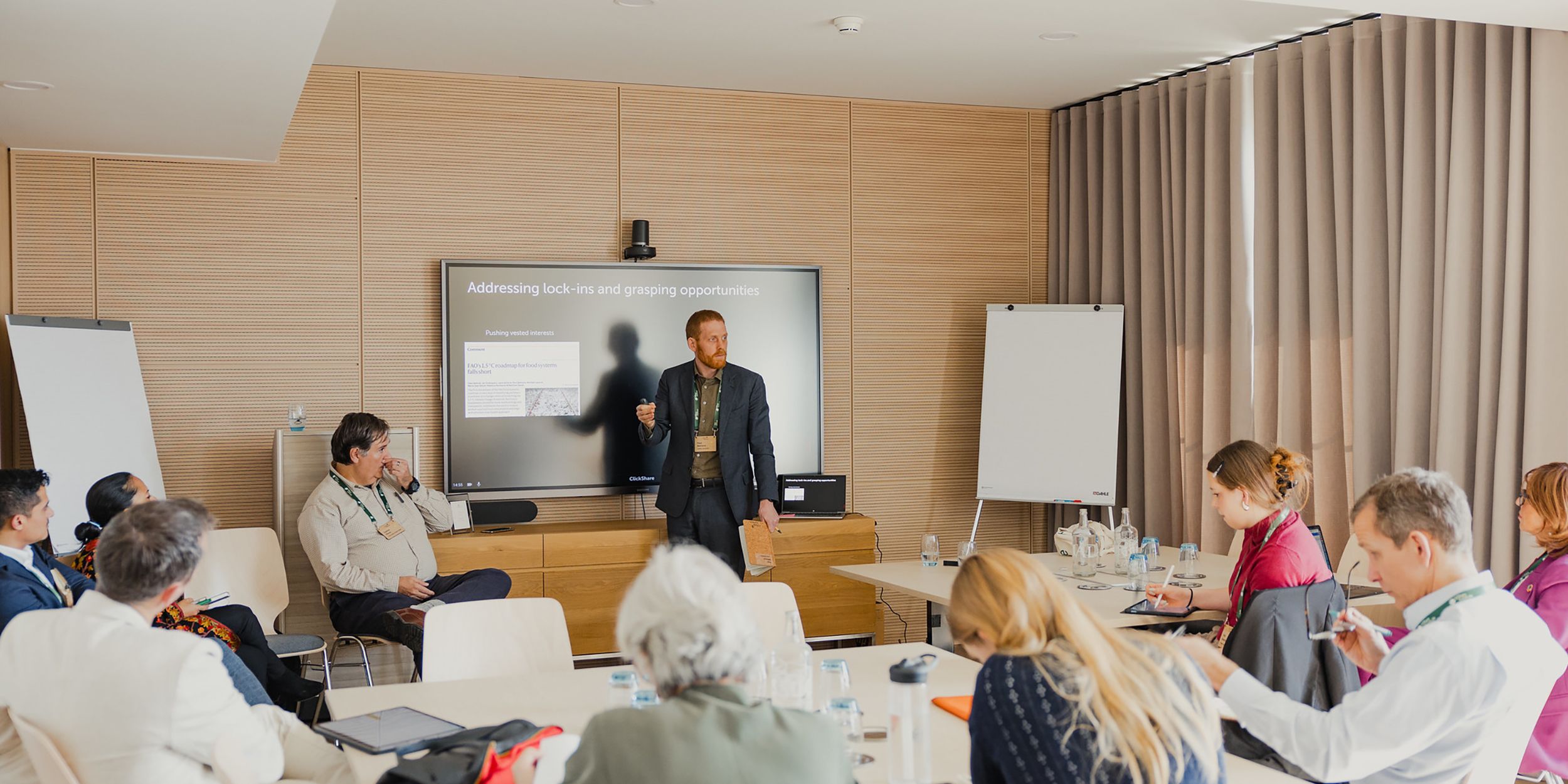The Ideas
The discussion commenced with a reflection on the evolving discourse surrounding climate change, tracing its trajectory from an exclusive focus on natural sciences to a more inclusive consideration of social sciences and interdisciplinary collaboration.
The first expert, representing a prize that celebrates breakthroughs in sustainability science, rewarding solutions that show measurable potential to help humanity remain within the boundaries of the Earth’s ecosystem, articulated its mission to galvanize the scientific community towards expediting the search for sustainable solutions. Emphasizing the significance of preventing the breach of planetary boundaries, the expert underscored the need for holistic approaches integrating insights from both natural and social sciences. Furthermore, the importance of effective communication and dissemination of accessible data to the public was highlighted as a critical avenue for fostering awareness and mobilizing collective action.
Following this, the awardee of the prize illuminated the imperative of examining global challenges through multifaceted lenses, encompassing both natural and social sciences. Drawing attention to the concept of "lock-ins" and the potential for leveraging crises to propel transformative change, the expert advocated for proactive engagement across sectors to unlock opportunities for sustainable development. Furthermore, insights from the food sector were shared, emphasizing the transformative potential of dietary changes, reduction of food waste, and enhancements in production methods, particularly advocating for the adoption of plant-based diets.
Subsequently, the final expert, also a recipient of the prestigious prize, delved into a groundbreaking project centered on the protection of the Brazilian Amazon. Highlighting the vital role of empowering local communities as stewards of conservation efforts, the expert showcased the efficacy of community-led initiatives in safeguarding biodiversity and promoting socioeconomic resilience. By illustrating the success of his rewilding program in revitalizing ecosystems and fostering community well-being, the expert underscored the imperative of fostering trust-based collaborations with indigenous communities, acknowledging their unparalleled expertise and custodianship of the land.
Throughout the discourse, a resounding call to action resonated, emphasizing the critical need for collaborative efforts to navigate toward a sustainable future within the confines of planetary boundaries. From mobilizing scientific expertise to amplifying community voices, the experts articulated a vision of transformative change grounded in inclusivity, innovation, and unwavering commitment to planetary stewardship.
The Perspectives
A participant inquired about the tangible benefits of the prize for its awardees and their research. In response, both the representative of the prize and the awardees delineated three key advantages: the prestige and recognition conferred by the award, the opportunity to scale up research or projects, and the freedom it provides for ambitious, big-picture thinking compared to traditional government grants.
This discussion catalyzed a broader conversation on the challenges of funding interdisciplinary research, a critical element for addressing complex global issues such as climate change and biodiversity loss. Participants highlighted the systemic barriers that hinder interdisciplinary collaboration, including the reluctance of individual departments or fields to assume responsibility for funding such efforts. Moreover, publishing articles on interdisciplinary research faces similar hurdles, worsening the challenge of advancing transformative agendas towards a net-zero and nature-positive future.
Recognizing the aforementioned prize as a potential bridge to overcome these barriers, participants underscored the importance of systemic solutions to foster interdisciplinary collaboration. The prize served as an exemplar of how such initiatives can support and celebrate interdisciplinary research, against the backdrop of persistent funding challenges.
Moreover, participants lamented the time-intensive nature of addressing the funding issue, emphasizing the urgency of the task at hand in light of escalating environmental crises. However, amidst the discussion, optimism emerged regarding the potential for private investors to contribute to scientific research advancements, underscoring the importance of mobilizing diverse stakeholders in the pursuit of sustainable solutions.
Lastly, participants highlighted the imperative for scientists to engage with and educate sectors such as technology and finance, where understanding of ecosystems and climate science may be lacking. Bridging this gap through collaboration and knowledge exchange was deemed essential for fostering informed decision-making and catalyzing transformative action at scale.



